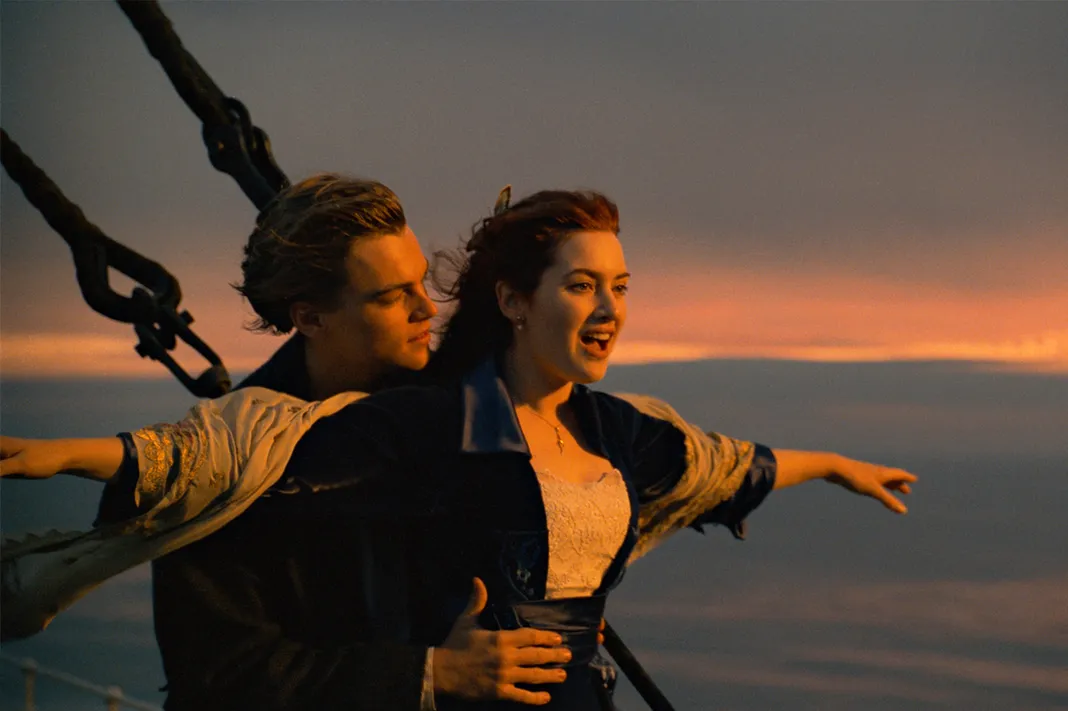
You don’t get anywhere in Hollywood taking no for an answer. It takes brass balls, an iron will, and desire to ignore anyone that disagrees with you. Here are four iconic directors who got where they are by just doing whatever the hell they wanted.
1. James Cameron never wanted to make Titanic
Today, Titanic is one of the most successful films ever made, but the truth is director James Cameron didn’t even want to shoot the film. He decided to produce Titanic because “I wanted to dive to the shipwreck, not because I particularly wanted to make the movie.” In fact, Cameron described the film as “fuck you money.”
You see, ever since he was a child, Cameron had been fascinated by shipwrecks (a perfectly normal hobby for a well adjusted kid). In particular, Cameron loved the Titanic which he called “the Mount Everest of shipwrecks.” After watching an IMAX film which explored the ruins of the Titanic, Cameron said to himself “I’ll make a Hollywood movie to pay for an expedition and do the same thing.” Cameron pitched his movie as “Romeo and Juliet on the Titanic” and eventually 20th Century Fox agreed to fund the film (as well as Cameron’s undersea expedition).
2. Steven Spielberg made his own James Bond movie
In the late 1970s Steven Spielberg was desperate to make a James Bond film and even set up a meeting with Bond producer Albert Broccoli. At this point in his career, Spielberg wasn’t some no name director either. He had just finished making Jaws (which received an Oscar nomination for Best Picture) and Close Encounters of the Third Kind (which earned Spielberg his first Best Director nomination). In fact, Bond himself, Roger Moore, personally recommended Spielberg, however the director was quickly turned down.
After being rejected from Bond, Spielberg deiced to make his own action adventure franchise instead. “I’ve never asked again,” he told the Daily Mail, “Instead, I made the Indiana Jones series.” As an extra fuck you to Bond, Spielberg even released Raiders of the Lost Ark the same month as For Your Eyes Only. Raiders destroyed Bond at the box office on its way to nine Oscar nominations. Roger Moore later admitted that Indiana Jones was a step beyond Bond although we’re not sure if Broccoli ever regretted his decision.
3. George Lucas shot a Flash Gordon knock off (called Star Wars)
Speaking of Indiana Jones, Spielberg’s long-time collaborator George Lucas also decided to make his own billion dollar franchise after being turned down (these guys handle rejection like a champ). As a kid, George Lucas loved Flash Gordon and began to wonder if he could make his own film adaptation, “Of course I realize now how crude and badly done they were,” Lucas explained, “loving them that much when they were so awful, I began to wonder what would happen if they were done really well.”
Fellow director Francis Ford Coppola accompanied Lucas when he attempted to acquire the rights to Flash Gordon. After Lucas was turned down, Coppola recalls, George simply said, “Well, I’ll just invent my own.” Lucas wrote down the idea for his own space opera and called it Star Wars.
4. David Fincher protested rewrites on Seven
After finishing production on Alien 3, David Fincher quipped “I thought I’d rather die of colon cancer than do another movie.” However, after New Line Cinema sent him the script for the crime drama Seven (or Se7en if you want to be edgy), Fincher immediately signed on to direct. However, there was only one problem: the studio had accidentally sent Fincher an old version of the script.
New Line wanted to make a straight-forward police procedural, rather than the “meditation on evil” that the original script provided. In particular, the rewrite had removed the “What’s in the box?” ending. Fincher threatened to walk unless the studio agreed to let him shoot the original ending and even convinced star Brad Pitt to join the protest. Eventually, the studio relented and the ending of Seven became one of the most memorable moments in film history.


